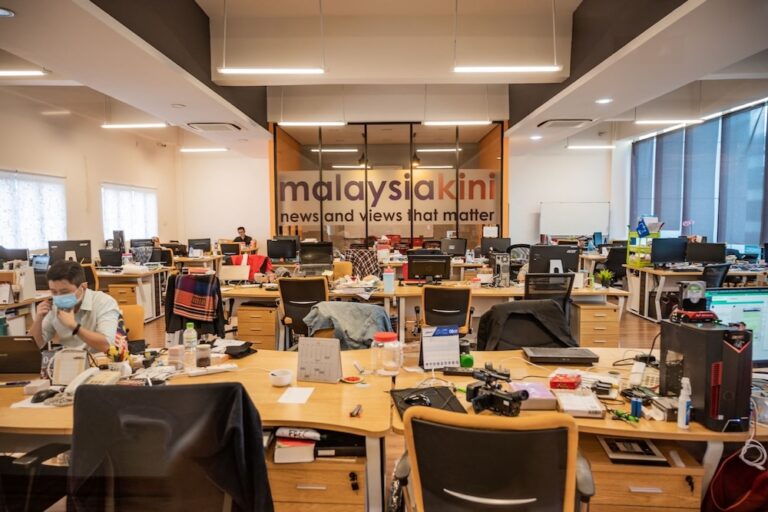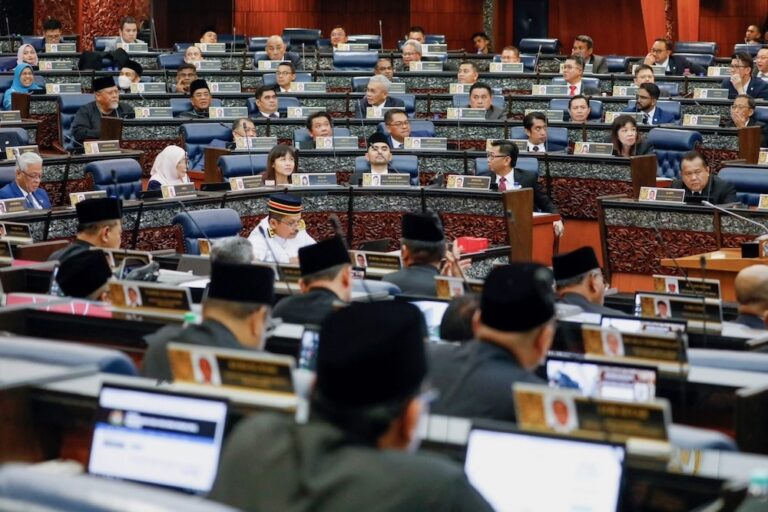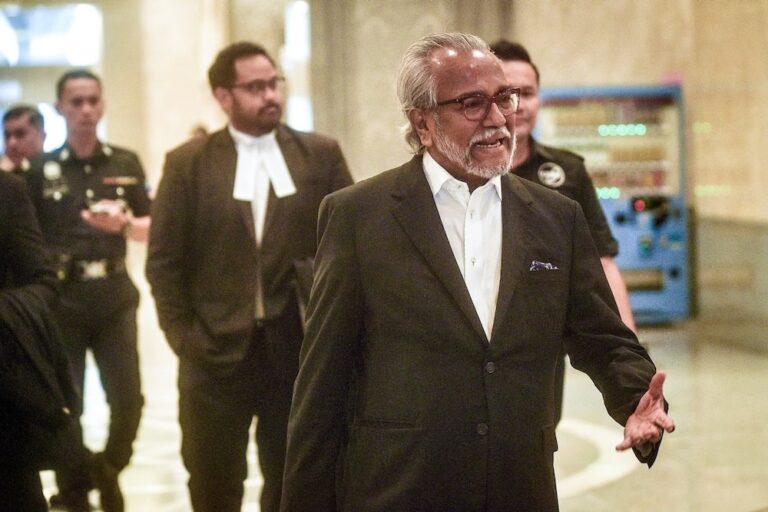(SEAPA/IFEX) – The Southeast Asian Press Alliance (SEAPA) is more than a little bemused by Malaysia Prime Minister Abdullah Ahmad Badawi’s recent claim that “the Malaysian press have freedom” and are “not tightly controlled”. In an interview with CNN aired on 14 October 2006, Abdullah denied that the media are tightly controlled, though he admitted […]
(SEAPA/IFEX) – The Southeast Asian Press Alliance (SEAPA) is more than a little bemused by Malaysia Prime Minister Abdullah Ahmad Badawi’s recent claim that “the Malaysian press have freedom” and are “not tightly controlled”.
In an interview with CNN aired on 14 October 2006, Abdullah denied that the media are tightly controlled, though he admitted that they practise self-censorship, reported wire service AFP.
“The main press self-censor but . . . other little ones . . . print all sorts of things,” he was quoted as saying.
While SEAPA is heartened that Abdullah recognises the reality of self-censorship in the news room, we wished that the prime minister, who is also the internal security minister, had been as forthright in revealing the reasons for this regrettable practice. Decades of repressive laws and ownership by the ruling political parties have severely hampered the media’s ability to play their role independently as the public’s watchdog. Below are some of the biggest legal obstacles that have created a climate of fear in the media that has yet to abate to this day:
a. The Printing Presses and Publications Act (1984) requires that all periodical publications obtain a permit from the internal security minister. The permit is subject to renewal annually and can be revoked without judicial review. The chilling effect of the shutdown of three newspapers in 1987 for their critical coverage of issues of the day is still felt 19 years later and used to excuse self-censorship.
b. The Sedition Act (1948) criminalises any speech with a broadly defined “seditious tendency.” The speaker’s intent and the statement’s veracity are irrelevant. Those found guilty may be jailed up to three years or fined RM5,000 (approx. US$1,360). In May 2003, Zulkifli Sulong, editor of opposition organ “Harakah”, was found to have published “seditious” information about the trial of former deputy prime minister Anwar Ibrahim and fined RM5,000. In January 2003, police raided the office of independent online daily “malaysiakini” ( http://www.malaysiakini.com ) and seized 19 computers over a police report lodged against a published letter that had derided the ruling Malay party for its ethnic-based policies. The computers were released and the charge dropped two years later. In April 1998, opposition parliamentarian Lim Guan Eng was sentenced to 18 months in prison for publishing a pamphlet that pointed out the injustice in a statutory rape case that saw the victim detained while her alleged rapist, a top minister, was free. In 1996, human rights activist Irene Fernandez was charged with “maliciously publishing false news” after she released a report on the abuse of migrant workers and their deaths in detention camps. Her trial, the longest in Malaysia, dragged until 2003, when she was finally found guilty and sentenced to a year in prison. She is out on bail pending an appeal. In 2005, Fernandez received the Right Livelihood Award “for her outstanding and courageous work to stop violence against women and abuses of migrant and poor workers.”
c. The Official Secrets Act (1972) allows for official documents, information or materials to be classified as top secret, the grounds of which cannot be questioned even in court. As local communication rights advocate Centre for Independent Journalism ( http://www.cijmalaysia.org ) puts it: “The colour of [Prime Minister] Abdullah’s toilet paper can be classified as an official secret, if he wants it to be so.” Six people, including two journalists, have been convicted under the act since 1978. In 1986, the act was amended to remove judicial discretion in sentencing, mandating a jail sentence ranging from one to seven years.
d. The Internal Security Act (1960), among others, empowers the police to prohibit the publication, circulation and possession of subversive publications or documents that incite violence, breach of laws, breach of peace and which are prejudicial to the national interest or security of the country. It also allows for detention without trial of persons deemed a threat to national security. In 2001, “malaysiakini” columnist Hishamuddin Rais, who is also a filmmaker and opposition activist, was detained for two years for allegedly plotting to overthrow the government through “militant means.”
e. The Defamation Act (1957) has been used to sue almost every newspaper and television station between July 2000 and March 2001. Prior to the 2001 Chief Justice ruling for a minimum quantum for damages, there had been suits against the press of up to RM100 million (approx. US$272 million), the precedent of which was set in July 2000 by a RM7 million (approx. US$2 million) award to business tycoon.
Besides these ever-present threats to the media, there are the ad hoc curbs imposed by the authorities.
In February, the government said it will not inform the media of raids on undocumented workers as such events usually generate negative publicity.
The Prime Minister’s Department also ordered the media to play down public anger and protests over oil price hikes. Weekend demonstrations held from March to May at the Petronas Twin Towers received scant media coverage despite drawing hundreds of protestors in a country relatively unused to public demonstrations. A 28 May demonstration saw police attacking protestors, including journalist Lim Hong Siang of independent Chinese-language news site “merdeka review”, who was kicked and threatened with confiscation of his camera.
On 24 June, the Information Ministry ordered a Mandarin radio programme on the state-run station Ai FM to restructure its live call-in format following callers’ heavy criticism of a controversial Government order affecting Mandarin-based schools.
Abdullah himself has issued gag orders on several occasions this year. On 26 July, he ordered the media to stop discussions on race, religion and forums on freedom of religion. On 2 August, he threatened to detain those who spread “untruths and slander” on the Internet and short-text messages.
These documented curbs make hollow the prime minister’s claim that “the Malaysian press have freedom.” Until such shackles are removed and expunged by establishing media-friendly legislation, Abdullah should expect the Malaysian media to continue to practise self-censorship as a matter of survival.


